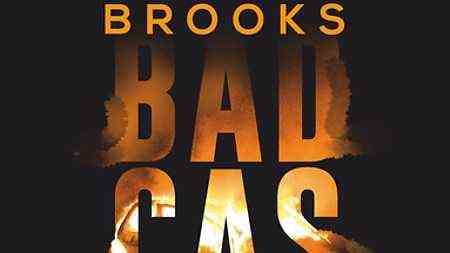A city in turmoil, in a chaos of violence and destruction, you know such a sight from the daily news broadcasts on television … “There was fire everywhere, buildings lay in ruins, the ambulance lights flashed through a smoke-blackened darkness.” It is not a distant, war-torn city, here it is London, in a relentless state of emergency. Cars set on fire, shop windows smashed, shops looted, figures dressed in black with hoodies and face masks, barricades everywhere. The city gangs suspended their bloody feuds for the night – a truce with the common goal of killing as many cops as possible. And: to catch the boy everyone calls Bad Castro. He is around thirteen or fourteen years old, lives in the high-rise estate of Cane Town, belongs to the CTK gang (that comes from Cane Town Kills), which deals in drugs, and is said to have killed the CTK boss Vidious.
“Jerk, jerk, they grab and kill you, but life is already wasted anyway …”
First, however, following an anonymous tip-off, the police arrested him and he is to be taken to the Stock Hill precinct. In the car that transports him there are two long-serving detective sergeants and the young policewoman Judy Ray, she is the narrator of the night. The car is attacked, the two colleagues are killed, Judy and Castro get away and have to make their way across enemy gang territory, if possible unnoticed by the gangs, to Cane Town or to Stock Hill … The two are on their own, cannot Call for help via mobile phone, no network. They couldn’t be more different, they stand on two completely opposite sides.
Castro is familiar with the violent gang world, he reacts very pragmatically to the threats of the night: “quietly, soberly, dispassionately”, Judy has to confide in him again and again in order to survive. To describe Castro and his code of conduct, Kevin Brooks has prefixed his new novel with a motto from Roberto Saviano’s mafia book “Gomorrah”, about the “little brats” of organized crime: “Jerk, jerk, they grab and kill you, but life is already wasted anyway … “
Castro’s gang pragmatism can only oppose Judy with her principles as a policewoman, which she swore in her oath of service, which now, when it comes to self-defense in hopeless situations, sound like empty formulas. You’re one of the good guys, Castro says mockingly. Judy’s naivete is a form of armor against lawlessness – which she has to let go piece by piece. And she senses something in Castro beyond the gait rituals: “He had something empty, an empty heart, and I didn’t know what to conclude from it, it didn’t seem, not part of a staging …”
While the two fight each other through the night, sometimes ducking down and hiding, in a small bookstore, sometimes in open confrontation, their story takes on fairy-tale traits, like Hansel and Gretel, little brothers and sisters. And Castro can help Judy finally find herself. “I’ve buried a lot in recent years. I have a whole graveyard in my skull, a whole burial ground of oblivion. The tombstones are empty.”

